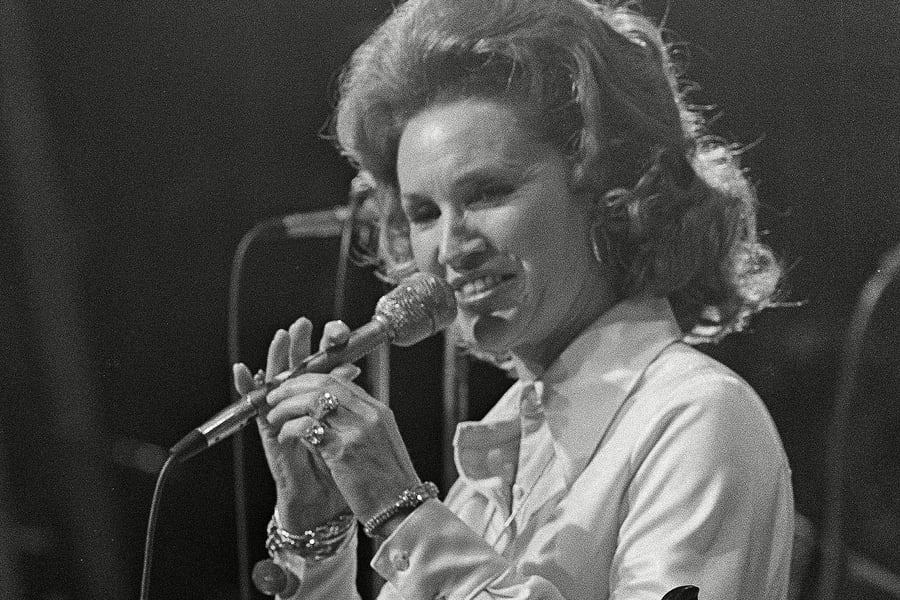Jan Howard, a 49-year member of the Grand Ole Opry and a chart-topping country singer, died Saturday in Gallatin, Tennessee, according to a statement from the Opry. She was 91.
Born Lula Grace Johnson in West Plains, Missouri, in 1930, she was the eighth of 11 children, two of whom died before reaching the age of two. After dropping out of high school, Howard married at 16 but soon divorced and moved to Los Angeles. There, she would meet Wynn Stewart, one of the architects of the Bakersfield Sound. She would also meet her second husband, songwriter Harlan Howard. She signed to Challenge Records and, at the label’s request, changed her name to Jan Howard.
Her first hit, penned by her husband and Fuzzy Owen, was “The One You Slip Around With,” a Top 20 single in 1960. The Howards relocated to Nashville, where she began appearing on the Opry. Howard would sing on demos of songs written by her husband, including “I Fall to Pieces,” a major success for Patsy Cline. After a brief recording career with Capitol Records, she was signed to the Decca label, landing a Top Five single with “Evil on Your Mind.” Howard would also team with Opry star Bill Anderson on a number of duets, including her sole Number One, “For Loving You.”
Howard’s eldest son, Jimmy, was drafted into the Vietnam War in 1968, and frequent letters she would write to him inspired her to write the song “My Son,” a powerfully emotional single she would record in one take. Howard earned a Grammy nomination for the song. Later in the year, PFC James Van Howard was killed in a landmine explosion. Howard’s middle son, Carter, also served in Vietnam. Her youngest, David, would take his own life in 1973. Howard’s work with the armed forces, mental health facilities, and veterans organizations would earn her the Tennessee Adjutant General’s Distinguished Patriot Medal, its highest civilian honor. In 2005, the Commander in Chief of the Veterans of Foreign Wars presented her with the Medal of Merit, for “exceptional service rendered to country, community and mankind.”
Howard was inducted into the Opry on March 27, 1971, and would continue to have hits through the Seventies. She served as one of the Opry’s key performers and ambassadors throughout the remainder of her life. Her autobiography, Sunshine & Shadow: My Story, published in 1987, detailed a turbulent, often tragic life that Howard herself would describe as “a great soap opera.” Authors Robert K. Oermann and Mary Bufwack praised Howard’s “blunt, no-nonsense manner and stylish, no frills look” in their book Finding Her Voice.
“Jan Howard was a force of nature in country music, at the Opry, and in life,” said Grand Ole Opry Vice President and Executive Producer Dan Rogers. “We were all so lucky so many nights to hear her voice on stage and to catch up with her backstage. We’re all better for having had her in our lives.”
As a songwriter, Howard scored hits for Kitty Wells (“It’s All Over But the Crying”), Connie Smith (“I Never Once Stopped Loving You”), and Bill Anderson (“Love Is a Sometimes Thing”).
Love Music?
Get your daily dose of everything happening in Australian/New Zealand music and globally.



































